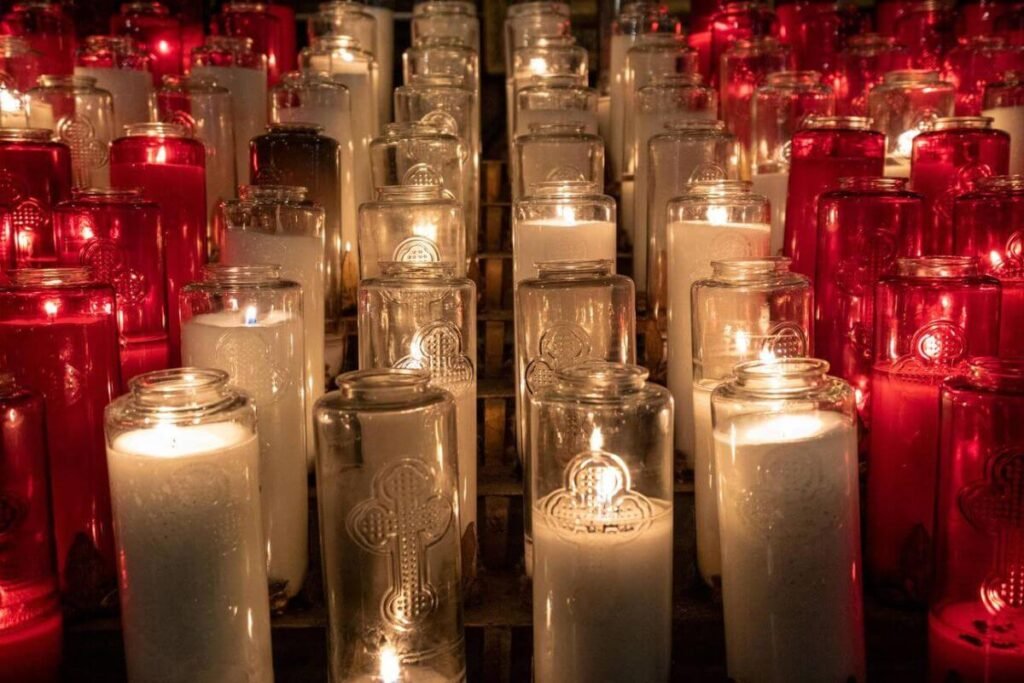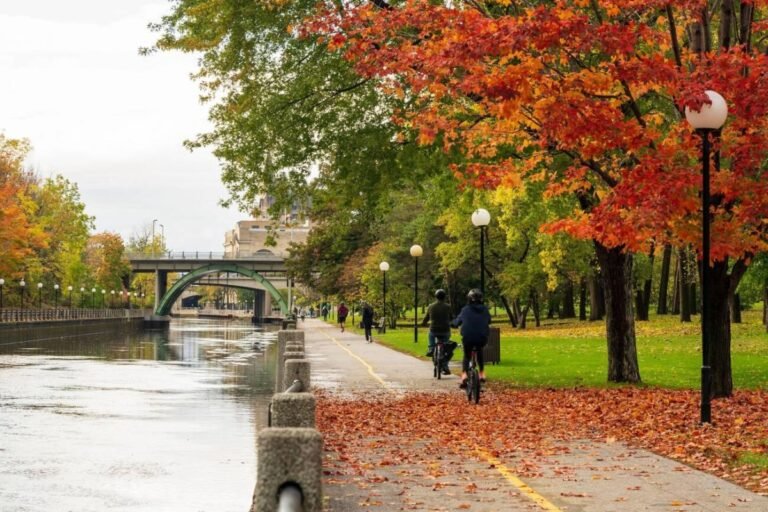Montreal’s Notre-Dame Basilica stands as a crowning achievement of Gothic Revival architecture in North America. Located in the historic district of Old Montreal, this basilica is not only a focal point of religious life but also a major tourist attraction, renowned for its breathtaking interior, which features an extensive array of stained glass windows and an intricately designed altar. This detailed exploration delves into the history, architectural splendor, and cultural significance of Notre-Dame Basilica, providing a deeper understanding of why this site remains a must-visit for anyone traveling to Montreal.
A Beacon of Faith and Artistry
Historical Backdrop
Constructed between 1824 and 1829, Notre-Dame Basilica was designed by James O’Donnell, an Irish-American architect who was profoundly influenced by the Gothic Revival movement in Europe. The basilica replaced an older church that was no longer capable of accommodating the growing congregation. O’Donnell’s vision was to create a space that was both majestic and inspiring, a goal that was undoubtedly achieved in the completed structure.
Architectural Grandeur
The exterior of the basilica, with its twin towers named Perseverance and Temperance, captures the essence of traditional Gothic structures, characterized by pointed arches, ribbed vaults, and flying buttresses. The west tower houses a grand bell known as Jean-Baptiste, which weighs over 11 tons.
Inside the Basilica: A World of Color and Light
The Stained Glass Panorama
Unlike traditional Gothic churches, whose stained glass typically depicts biblical scenes, the stained glass windows inside Notre-Dame Basilica illustrate scenes from the religious history of Montreal. These windows not only enhance the spiritual ambiance but also serve as a colorful narrative of the city’s heritage, casting vibrant hues across the sanctuary.
Artistic Details and the Altar
The interior of the basilica is a spectacle of colors, with blue and gold motifs dominating the space, creating a starry sky effect in the sanctuary. The altar is an elaborate work of art, detailed with intricate wood carvings and statues of saints. Above, the ceiling is adorned with golden stars, while the sanctuary lamps provide a soft glow that enhances the mystical atmosphere.

Cultural and Spiritual Hub
A Center for Music and Celebrations
Notre-Dame Basilica is not only a place of worship but also a venue for major cultural events, including classical music concerts and organ recitals. The basilica houses a Casavant Frères pipe organ, one of the most sophisticated instruments in North America, which fills the space with its powerful and harmonious sounds during performances.
Tours and Events
Visitors to the basilica can partake in guided tours that explore the rich history and architectural details of the building. These tours often include access to areas that are not typically open to the public, such as the sacristy and the galleries. Additionally, the basilica is a popular venue for weddings and funerals, celebrated for its solemn beauty and sacred atmosphere.
Planning Your Visit
Best Times to Visit
The best time to visit Notre-Dame Basilica is during the morning hours on weekdays when there are fewer tourists and the light through the stained glass creates a mesmerizing effect. It is also worthwhile to check the basilica’s calendar for special events that might coincide with your visit.
Accessibility and Tips
- Admission: There is a fee for entering the basilica, which goes towards the maintenance and preservation of the site.
- Photography: Photography is allowed, but flash photography is prohibited during mass and other services to maintain the sanctity of the ceremonies.
- Dress Code: Visitors are advised to dress modestly out of respect for the basilica’s religious significance.
Conclusion
Notre-Dame Basilica of Montreal is more than just a church; it is a masterpiece of design, a repository of history, and a vibrant cultural venue. Its stunning stained glass, elaborate interiors, and powerful organ music offer an immersive experience that resonates with visitors long after they have left. Whether you are drawn by faith, art, or history, Notre-Dame Basilica promises a profound and enriching encounter.



